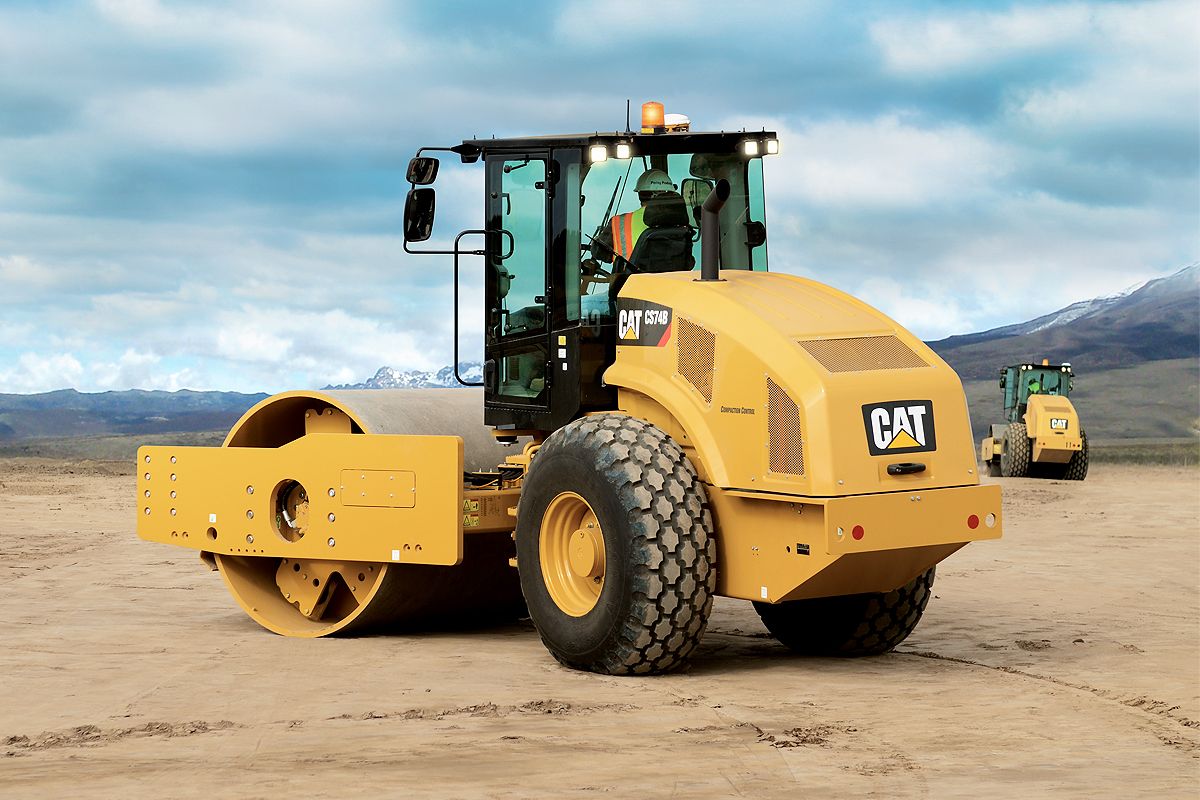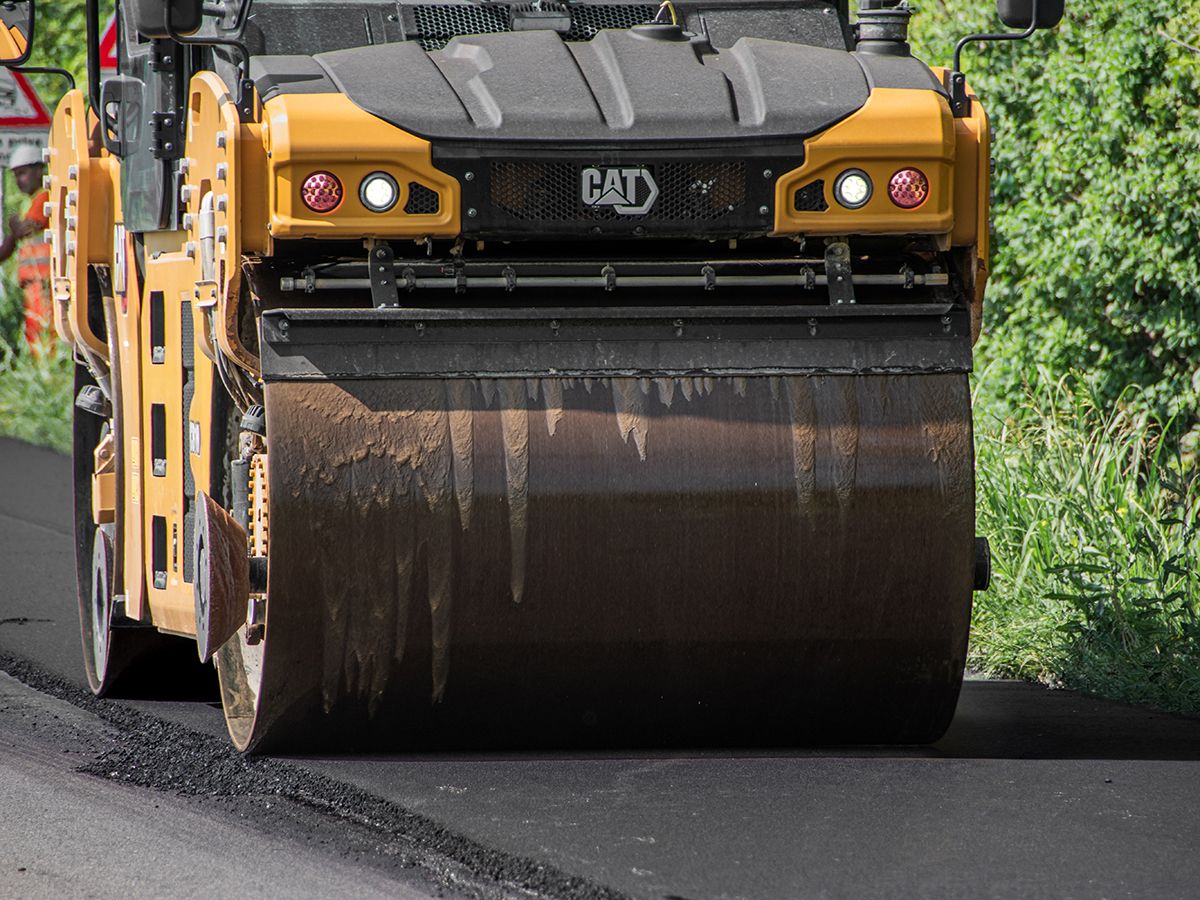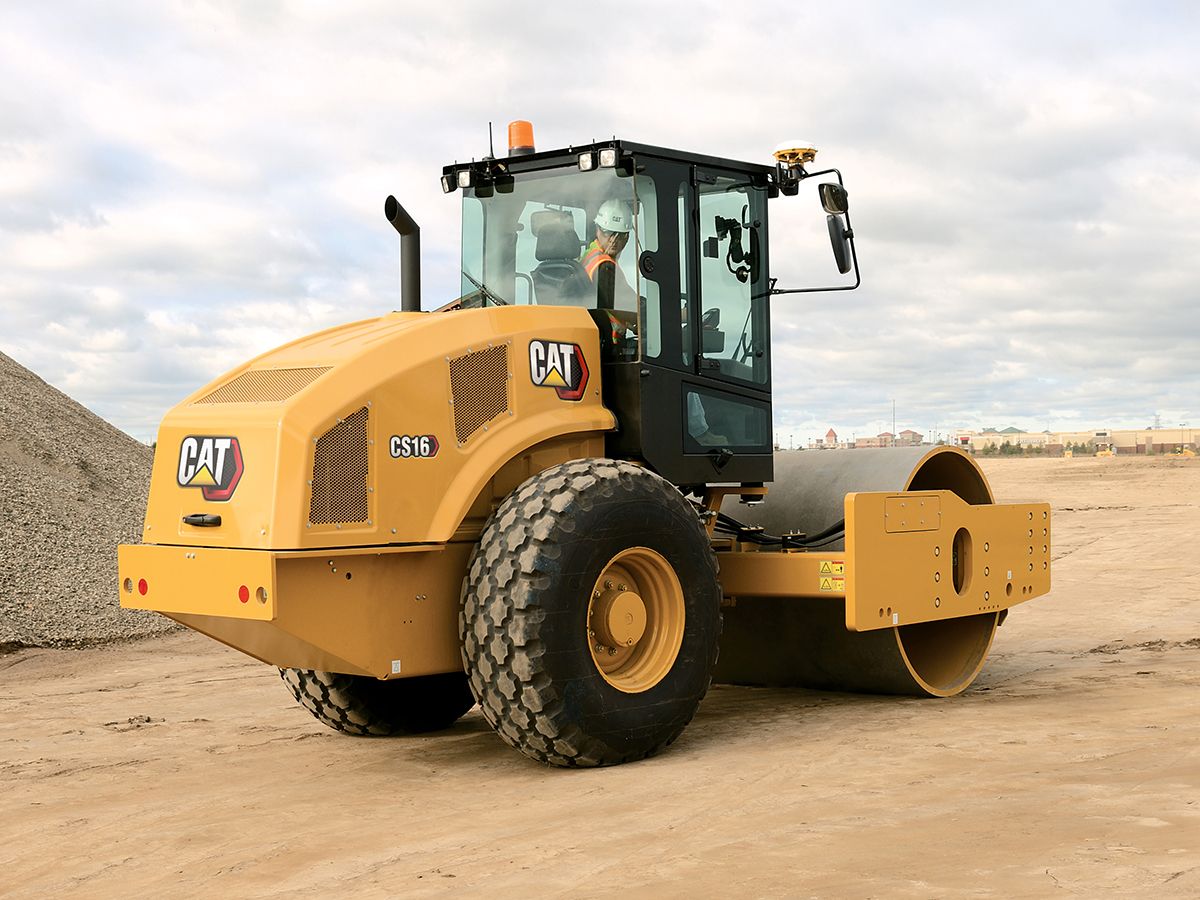/
Technology
/
Compact
/
Compact
Cat Compact with Compaction Meter Value (CMV)
Cat Compact with Compaction Meter Value (CMV)Overview
Compaction Meter Value is an accelerometer-based system that provides an indication of material stiffness. The system is available on smooth drum vibratory soil compactors and tandem vibratory asphalt compactors. It measures only when the vibratory system is active, and provides a unitless value derived from the recorded data that indicates composite stiffness.
Benefits & Features
Asphalt Applications
- CMV technology utilizes a drum-mounted accelerometer to measure and record composite stiffness of the material below the drum.
- A unitless value calculation derived from the recorded data provides an indication of composite stiffness and is referred to as a "composite stiffness value" that indicates stiffness of the current and supporting layers beneath the drum.
- The system has scalable accuracy to provide the highest level of Global Navigation Satellite System positioning (GNSS) and is able to record compaction, frequency, and pass-count data to the specific location the measurement was taken.
Soil Applications
- The system is designed to help contractors find and remedy potential problems while the ground is open and the costs are lower. The design calculates an indication of soil stiffness, converting it to an estimated unitless value.
- CMV can measure 1 m to 1.2 m (39 to 48 in) deep depending on the soil type, moisture and other factors and can indicate the presence of buried objects (rocks, tree trunks, clay balls) that could affect the quality of the base.
- CMV can also indicate the need for additional moisture to aid compaction.
- The accelerometer based design is recommended for granular based materials where less vibration variability occurs.
- When utilized on cohesive type soils the accelerometer readings deliver greater variations due to the elasticity of the soil, thus the system is not recommended for cohesive type soils.
May 8, 2025
Specifications
Units:
Benefits & Features
Asphalt Applications
- CMV technology utilizes a drum-mounted accelerometer to measure and record composite stiffness of the material below the drum.
- A unitless value calculation derived from the recorded data provides an indication of composite stiffness and is referred to as a "composite stiffness value" that indicates stiffness of the current and supporting layers beneath the drum.
- The system has scalable accuracy to provide the highest level of Global Navigation Satellite System positioning (GNSS) and is able to record compaction, frequency, and pass-count data to the specific location the measurement was taken.
Soil Applications
- The system is designed to help contractors find and remedy potential problems while the ground is open and the costs are lower. The design calculates an indication of soil stiffness, converting it to an estimated unitless value.
- CMV can measure 1 m to 1.2 m (39 to 48 in) deep depending on the soil type, moisture and other factors and can indicate the presence of buried objects (rocks, tree trunks, clay balls) that could affect the quality of the base.
- CMV can also indicate the need for additional moisture to aid compaction.
- The accelerometer based design is recommended for granular based materials where less vibration variability occurs.
- When utilized on cohesive type soils the accelerometer readings deliver greater variations due to the elasticity of the soil, thus the system is not recommended for cohesive type soils.
Data not available.






